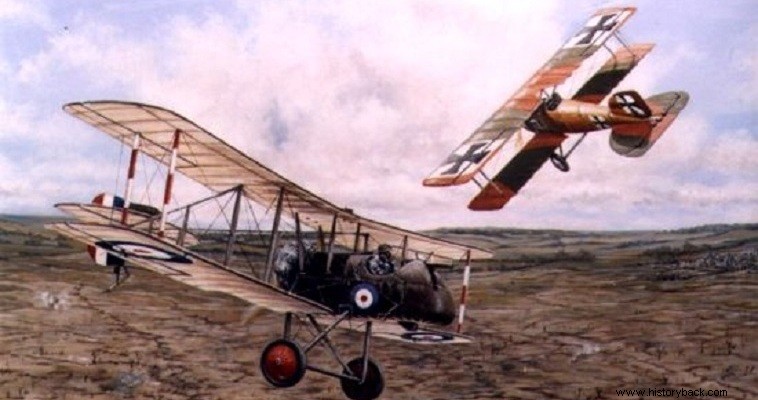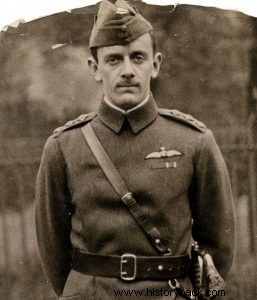
November 23, 1916 was a bright day. The golden rays of the sun bathed the scene, trying in vain to dispel the gloom of war. The Albatros of German Jasta 2 returned from their fruitless morning patrol. The German operators were resting enjoying the sunshine.
A few hours later they took off to carry out their afternoon patrol. Suddenly they spotted three D.H.2s of 24 Squadron of the Royal Flying Corps (RFC, the 'ancestor' of the RAF). Immediately the Albatros made a tight turn and rushed at them. The engines hummed loudly as the operators forced them to work at their maximum potential.
One of the D.H.2s suffered engine damage and was forced to abandon the battle and return badly to base. At the same time an Albatros was falling, out of control to the ground. The great duel, however, took place a little lower. Just 300 meters above the ground British Major Hawker, a nine-kill Victoria Cross ace, engaged Manfred von Richthofen, the famous 'Red Baron'.
An epic dogfight then took place, worthy of the fame and skill of the two pilots. Richthofen excelled in terms of the quality of his aircraft , of an Albatros D II, against the British D.H.2s.
Nevertheless, although he managed to "get on the tail" of the British, it was not so easy to take him down. Hawker maneuvered with unfathomable skill avoiding the attacks of the German ace. As if that wasn't enough Richthofen's machine guns got jammed.
He continued the pursuit, however, holding the rudder with one hand and trying with the other to block the barrel of one of his machine guns from a defective cartridge. And he really did. The one machine gun started firing again. D.H.2s were hit and crashed into German lines.
German soldiers removed Hawker's body from his damaged aircraft. A fireball from Richthofen had hit him in the head, killing him on the spot. The brave Briton was buried in the wreckage of his plane. A little earlier Richthofen, who had of course landed to confirm his victory, removed the piece of cloth with the code number of the enemy aircraft from his vertical stationary.
He also took with him, as a souvenir, the damaged machine gun of the British aircraft. It was "...the most difficult air battle I had ever taken part in", Richthofen himself later confessed.

